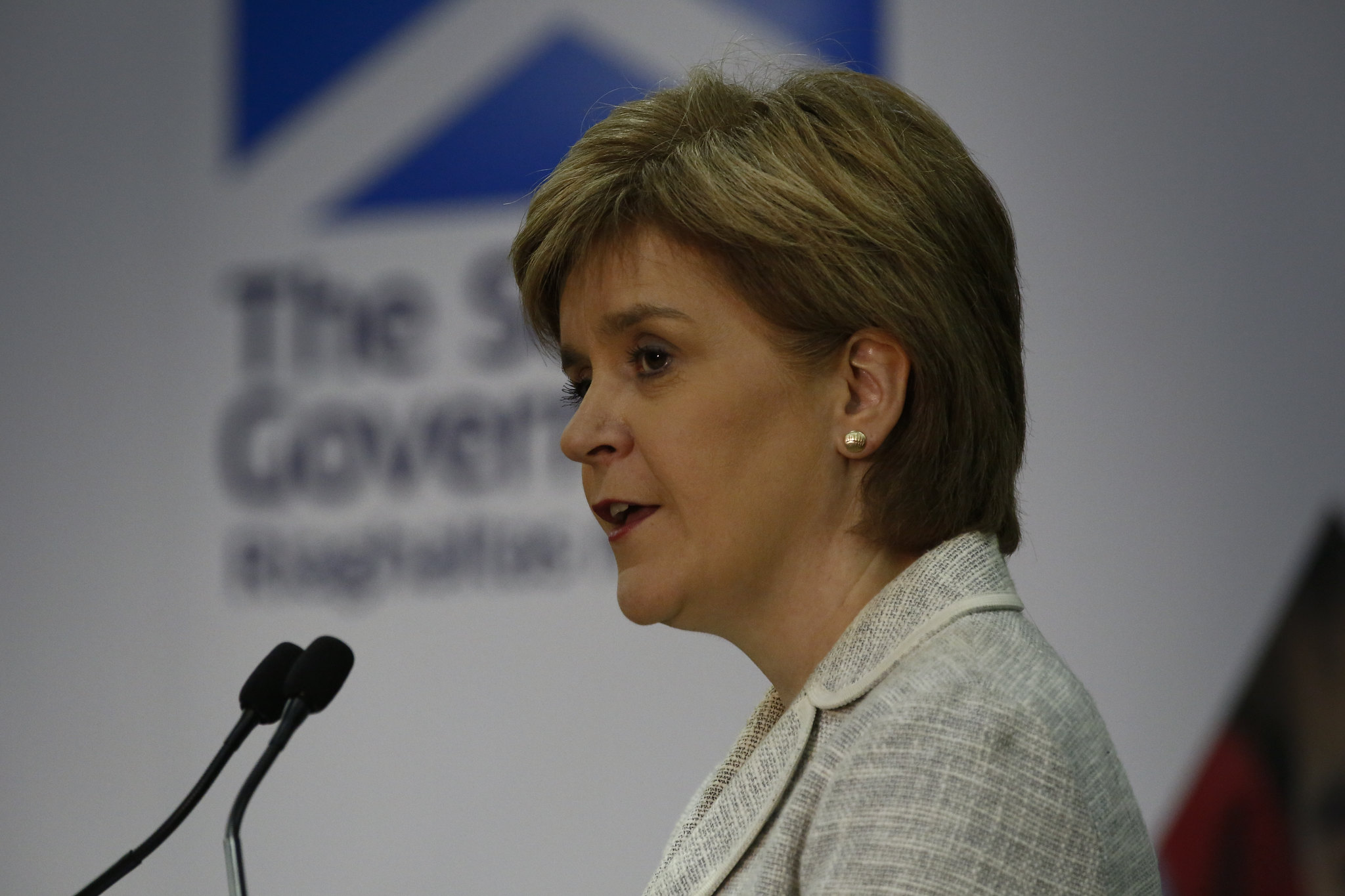As the UK looks towards the next General Election, the odds seem to be in favour of Keir Starmer’s Labour Party. Yet the fate of France’s Socialist Party, illustrating how power can be followed by near collapse, should be a cautionary tale for Labour. Sean McDaniel identifies the key lessons Labour can learn from the trajectory of its continental counterparts.
Imagine the scene. A conservative party in power amid economic crisis, rendered deeply unpopular by scandals, a detached governing style and an austere economic programme. The centre-left is led by a pragmatic centrist who speaks the language of change, but also moderation and fiscal discipline. He steers the party towards a landslide electoral victory, restoring it to power after years in opposition. And yet, just a few years later, that same party is unceremoniously dumped out of office by the electorate and finds itself on the brink of collapse as its voters, members and even some of its leading lights abandon it.
No, that is not a prediction of the future of the Labour Party. Rather, it describes the fortunes of France’s Parti Socialiste (PS) during François Hollande’s presidency. It should, however, act as a cautionary tale for Labour.
Under Keir Starmer, Labour has so far understandably been non-committal on policy details. It has, however, been much more assertive in positioning itself as a post-Corbyn party via its communications around key values. Labour, it is argued, will be “competent” managers of the economy. The party will be strict with day-to-day spending; it will not simply, it is suggested, “open the big government chequebook” and will instead look to reduce government “waste” in office.
Labour has so far been non-committal on policy details and much more assertive in positioning itself as a post-Corbyn party via its communications around key values.
On the other hand, the party is once again wooing the business community with positive noises about the role a dynamic private sector and finance can (and should) play in upgrading public services. Though such messaging is straight out of the New Labour playbook, it is fair to say that the party has shifted decisively from the Third Way era in other ways. Perhaps the most substantial change is the seriousness with which the party now engages with the issue of decarbonisation. The party’s pledge to invest £28 billion annually to help finance the climate transition is illustrative of how, under the guise of a “green prosperity plan”, it now ties decarbonisation to a much broader programme of social and economic change necessary to meet the challenges of a warming planet, as well as an increasingly fragmented global order and growing inequalities.
This is where things get tricky, however. In opposition, it is relatively straightforward to focus on the incompetence of the incumbent administration, particularly when you are readily supplied with so much ammunition. In government, however, Labour will find that making its two strategies cohere – conservative economic management and transformative green investment – will be another challenge altogether.
In France in 2012, Hollande came to power promising radical change. His agenda was avowedly anti-austerity and premised upon the progressive reorientation of the eurozone, the “mastering” of the world of finance and a domestic push for growth via industrial strategy and investment. Yet, at the same time, Hollande consistently prioritised reducing the country’s public debt and pledged a considerable fiscal consolidation effort between 2012 and 2017. As detailed in my new book, Divided They Fell: Crisis and the Collapse of Europe’s Centre-Left, the difference between Hollande’s rhetoric around le changement and the reality of his presidency split the party, and disillusioned its voters, members and parliamentarians. Ultimately, it shattered the Socialists’ identity and opened the door to emergent rivals, including Emmanuel Macron’s La République En Marche ! The PS now sits in parliament with just a handful of members, while its presidential candidates have been grouped with the “also rans” in the past two elections.
So what can Labour learn from the traumatic experience of government and subsequent decline of its sister party across the Channel?
Prevarication alienates voters and party members
Hollande promised radical changes to the eurozone architecture which he and his advisors admitted in private were never going to materialise. This “double discourse”, as it is known in PS circles, alienated voters and the PS’s own parliamentarians when, on entering office, Hollande accepted without reform the EU’s new Fiscal Compact as agreed by his predecessor Nicolas Sarkozy. Doing so set off a chain reaction of rebellions and undermined Hollande’s entire mandate for governing in the eyes of many.
Labour will likewise face many decisions it would perhaps rather avoid discussing in too much detail currently – from major fiscal choices to its own relationship with the EU. Dodging these questions until when in government, however, risks undermining the fragile electoral coalition Starmer and his team are trying to construct. For instance, Labour’s attempts to rebuild its electoral position in Red Wall seats have seen it quieten its commitment to European integration. Yet, Labour’s members, and even a majority of its voters, are overwhelmingly pro-EU, as are its current leadership team. Given the deleterious economic consequences of Brexit so far, a majority Labour government is likely to feel compelled to renegotiate the UK’s trading relationship with the EU – a process that will give the Conservatives political ammunition if it is not clearer with voters now about what it wants.
Establishing a clear identity means drawing dividing lines
If the events of the previous decade have taught us anything, it is that many voters are exasperated by the technocratic governing style of mainstream political parties, including the centre-left. New Labour – which argued economic globalisation had tied the hands of policymakers – was typical of this experience. Academic research has since shown that its liberalising reform programme broke a link between the party and some of its traditional voters in the 2000s.
In France, too, after initially promising progressive change, Hollande broke with his own governing mandate by implementing highly controversial liberalising supply-side reforms that he later argued were necessary. This U-turn undermined the PS’s identity and its purpose for governing. It legitimised the decades-old cry from populists of both the Left and Right that the Socialists were indistinguishable from the conservatives and gave impetus to various anti-system outfits, including Macron’s new movement, as well as the Far Right and radical Left.
Labour must spell out in political terms why the crisis situation we find ourselves in today is not the product of governing incompetence but the predictable ill effects of a political and economic project.
If Labour wins the next election, it is critical that the party sets out a stronger image of its own identity and its location within the major political debates of our age. Starmer talks about Labour’s key “missions” in office. But Labour must spell out in political terms why the crisis situation we find ourselves in today – including the cost-of-living crisis – is not the product of governing incompetence, but the predictable ill effects of a political and economic project led by the current administration. Doing so means drawing dividing lines in areas where Labour remains cautious, such as on increasing taxation.
Prioritising the immediate term will be necessary
Like Hollande’s, Labour’s programme promises bold change while also prioritising fiscal discipline, focusing on messages about maintaining a strict budgetary approach. Hollande bet the house on voters thanking him for administering the bitter medicine of long-term structural reforms to the French economy and, ultimately, lost. Starmer may already be planning for a second term in office. However, a Starmer-led government would – like Hollande’s Socialists – face entering power in the midst of an economic crisis and thus will also not have the luxury of time. Labour is prioritising capital investments that will help transition the UK economy over the long term. Yet it needs to be upfront about the scale of the investment needed to tackle the multitude of crises facing the country right now – in health, social care, education, the cost of living – to ensure that its standing in government isn’t undermined by the charge of inaction or, even more damningly, allegations of “more of the same” from the governing elite.
After more than a decade of opposition, tumultuous factionalism and Conservative dominance, the stars appear to be aligning for a future Starmer-led Labour government. Yet, the experience of the French centre-left should remind Labour of the challenges that lie ahead if they do re-enter office. Winning the next General Election is simply the first hurdle. Getting the right strategy in place to govern will be essential for ensuring the French experience is not repeated.
This article draws on analysis presented in the author’s new book, Divided They Fell: Crisis and the Collapse of Europe’s Centre-Left, released on 23 February 23 and published by Agenda publishing.
All articles posted on this blog give the views of the author(s), and not the position of LSE British Politics and Policy, nor of the London School of Economics and Political Science.
Image credit: Photo by UK Parliament UK Parliament, Attribution-NonCommercial 2.0 Generic (CC BY-NC 2.0)






